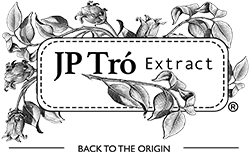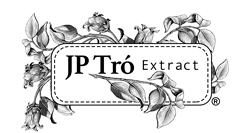From SiArt Swiss Company we defend and promote the importance of a healthy life with a proper nutrition. Good nutrition plays an essential role in our health. It reduces the risk of developing certain chronic diseases and therefore increases life expectancy. This is because food provides everything necessary for our cells to function properly and allows our body to develop harmoniously.
THE IMPORTANCE OF HAVING A NORMAL FUNCTIONING OF IMMUNE SYSTEM
Our immune or immunological system has two systems:
1.- The Cellular Immune System.
The Cellular Immune System is mainly specialized in fighting against intracellular pathogens (generated inside our organism) such as viruses, parasites or pathogens that have been phagocytosed. Phagocytosis is a specific form of endocytosis, an erroneous process that should not occur and where cells assimilate solid particles, including microbial pathogens, which are completely harmful. Cell-mediated immunity or cell-mediated immune system comes with us, it is innate. That is why it is called Innate Immunity.
2.- Humoral System.
The humoral system on the other hand, acts against extracellular pathogens, those that come from the outside. Its function is performed through molecules that circulate in the blood and in mucous secretions, such as antibodies. The humoral system learns over the years and with the appearance in our body of new viruses or pathogens. Once our humoral system has fought against a certain foreigner that wanted to attack us, it never forgets it, and if it comes back, our system will be prepared to fight it. The humoral system has an Acquired Immunity, as we were saying, it learns it with time.
WHY IS IT ESSENTIAL TO HAVE AN IMMUNE SYSTEM WITH A NORMAL FUNCTIONING?
The main function of our immune system is to fight viruses, bacteria or any other infectious organism that wants to damage our body. But WARNING if errors begin to occur due to a malfunction of the immune system, our immune system that was designed to protect us, can attack us and turn against us.
When the immune system does not work properly, it does not distinguish between its own cells and foreign or erroneous cells. And instead of fighting, fighting, or protecting us against external antigens or our own erroneous cells, the cells of the immune system or the antibodies they produce, can mistakenly go against their own cells and tissues, and even fail to act against the erroneous cells, allowing them to take over our body (example: appearance of cancer cells…). Example: rheumatic diseases, the immune system attacks bone tissue. The return of a normal functioning immune system will help the disappearance of attacks on our bone tissue.
This process is known as autoimmunity, and the components involved in the offensive are called autoreactive lymphocytes or autoantibodies. This erroneous response of the immune system contributes to several autoimmune diseases. Autoimmune diseases are caused by our own body, their error and cause is installed within us. Some scientists already consider cancer to be an autoimmune disease, it is beginning to be categorized in this way. Cancer cells are erroneous cells that appear and/or are created inside our organism.
Examples of autoimmune diseases:
Type 1 diabetes. Rheumatoid arthritis (RA). Psoriasis/psoriatic arthritis. Multiple sclerosis. Systemic lupus erythematosus (lupus). Inflammatory bowel disease. Addison’s disease. Graves’ disease. Sjögren’s syndrome. Myasthenia gravis. Autoimmune vasculitis. Pernicious anemia. celiac disease.
In addition:
Depression, as well as stress and lack of rest, decrease our defenses. Depression and stress cause an increase in the production of adrenaline and cortisol, to prepare the body to react. Leukocytes or white blood cells, cells that defend against possible infections, decrease, increasing the risk of contracting diseases. In addition, stress causes continuous fatigue and in most cases causes discontinuous or inadequate rest. Having a normally functioning immune system helps to directly combat depression, stress and lack of rest.
WE HIGHLIGHT SOME IMPORTANT FUNCTIONS OF OUR HEROES THAT MAKE UP OUR IMMUNE SYSTEM
Macrophages: bodyguards of the joints.
Macrophages are cells specialized in the detection, phagocytosis and destruction of bacteria and other harmful organisms. In addition, they can present antigens to cells and initiate the inflammatory process by releasing molecules (called cytokines), which activate other cells.
We highlight monocyte-derived macrophages, which actively contribute to joint inflammation, and epithelial-type macrophages that restrain the inflammatory response by providing protection through intra-articular tight junctions. This functional diversification among synovial macrophages has important implications for the overall role of this cell type in inflammatory processes. Macrophages thus exist in several subsets, some of which are proinflammatory, while others are anti-inflammatory and aid in tissue repair. This balance of inflammation and anti-inflammation makes them, among other things, the guardians of the joints.
Neutrophils: the recruiters.
They are very important as mediators of inflammation. On the one hand, neutrophils release different substances that contribute to the inflammatory reaction and the recruitment of other immune system cells to the site of infection. They are the most common type of white blood cell. They go to the site of infection and release substances called enzymes to fight invading bacteria or viruses.
Eosinophils: diplomats in the face of hypersensitivity.
They have different functions, of which we highlight:
Defense against parasitic infections. Defense against intracellular bacteria. Modulation of immediate hypersensitivity reactions.
Basophils: special operating group.
Basophils are found in the blood and when they are needed in parasitic infections, they come immediately and settle in the tissues. There, they unfold and release the contents of their granules, small compartments containing substances that facilitate the initiation of the inflammatory process (e.g. histamine) and the elimination of the pathogen.
Mast cells: the borderline agents.
They reside in tissues, are long-lived and are essential in inflammatory reactions, parasitic infections and allergic reactions, as they can be activated and release a wide variety of mediators by various antigens, such as allergens, pathogens and physiological mediators. Mast cells are found at sites that serve as a barrier between tissues and the outside world, such as the surface of the intestinal and pulmonary mucosa, the skin and of course surrounding blood vessels. Monocytes are cells that come from the immune system, which fight against certain infections, contributing to the leukocytes to destroy damaged tissues, and also eliminate cancer cells. They serve as a shield against foreign substances that cause disease.
Dendritic cells: the sentinels.
They are so called because of their “tree” or “dendrite” shape. They are responsible for initiating adaptive immune responses, and function as “sentinels” of the immune system.
Lymphocytes (B and T) and NK (Natural Killer) cells: the professional spies and killers.
There are two main types of lymphocytes: B cells and T cells. B cells make antibodies to fight invading bacteria, viruses and toxins. T cells destroy the body’s own cells that have been infected by viruses or have become cancerous.
The NK natural killer cell is a type of lymphocyte and a fundamental part of the innate immune system for the body’s defense. Its function is to destroy, without contemplation or hesitation, infected cells and cancer cells, as well as to regulate immune responses. When these cells fail and so do the T lymphocytes, and no longer perform their function because of the deterioration of our immune system, cancerous and/or erroneous cells begin to develop.


